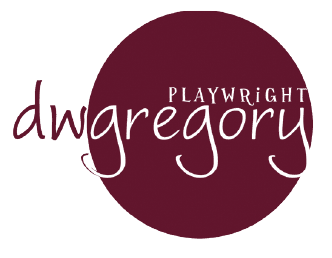Barking Up a Wrong Tree is one of my favorite blogs and here is why:
Eric Barker routinely compiles fascinating observations about all aspects of human nature and experience, with the stated purpose of learning to live life to its full awesomeness. But me being me, which means predisposed to moments of dark ruminations, or in more pedestrian terms, a moody crank, I take perverse comfort from posts like these, in which Eric assures us that the crazy times just might be the best, at least when it comes to literary output.

Citing the Storytelling Animal by Jonathan Gottschall, Eric tells us that:
In studies of deceased writers— based on their letters, medical records, and published biographies— and in studies of talented living writers, mental illness is prevalent. For example, fiction writers are fully ten times more likely to be bipolar than the general population, and poets are an amazing forty times more likely to struggle with the disorder. Based on statistics like these, psychologist Daniel Nettle writes, “It is hard to avoid the conclusion that most of the canon of Western culture was produced by people with a touch of madness.” Essayist Brooke Allen does Nettle one better: ‘The Western literary tradition, it seems, has been dominated by a sorry collection of alcoholics, compulsive gamblers, manic-depressives, sexual predators, and various unfortunate combinations of two, three, or even all of the above.
Well that’s no surprise to readers of literary biographies, but what should we conclude?
Madness just might be the price of art, but don’t confuse crazy with dangerous. That’s Eric talking. The truly psychopathic, he advises, are found in the boardroom, not the writing studio.
Of course we all knew that. But we won’t say so when the spring fundraising drive comes around.
Nevertheless, it’s no great leap to make a connection between one form of madness—substance abuse—and literary output. Eugene O’Neill, William Faulkner, F. Scott Fitzgerald, Tennessee Williams, Jack Kerouac, Charles Bukowski, William Inge, Dorothy Parker, Ernest Hemingway, Edna St. Vincent Millay, Hunter S. Thompson, Truman Capote—to name only a few—all devolved into outright drunks by the time the lights went out, and some well before, though several stumbled about upright for quite a while after the booze completely eroded their talents—see Williams, Tennessee for the kind of tatty exit one can only engineer when hammered. How likely are you to choke on a bottle cap when you’re fully sober and within reach of a telephone? Kinda don’t think so.
But as Eric assures us in another post, drink has its advantages. One can be more creative when soused, but the long list of rehab candidates here ought to serve as a cautionary tale. Don’t get too soused too often lest your literary lights fade fast and you find yourself, like Williams, churning out weak echoes of your former masterpieces, or like Hemingway, gazing longingly at the shotgun in the corner cabinet. Or you could end up like O’Neill, pickled but productive and bitter to the end.
But let us not confuse cause and effect with correlation. Yes, O’Neill was a crazy genius drunk, but that does not mean the drink made him a genius nor that the crazy made him a drunk. A combination of natural talent and proximity to the craft—doesn’t hurt that his father was a major stage talent of the 19th century—as well as an outsized ego, a relentless drive, and a burning need to show up the old man all combined to give young Gene his entre to the pantheon of Western literary greats. Didn’t hurt to be a white guy, either, in 1928, to be elevated to the ranks of Serious American Dramatist. O’Neill’s mentor, Susan Glaspell, on the other hand, is largely known today–if known at all–for a single short play, her widely anthologized proto-feminist one-act, Trifles, while the rest of her work–including 50 short stories, nine novels, and fourteen dramas (of which the Pulitzer-Prize-winning Alison’s House is one)–goes largely ignored. But then, Susan was neither drunk nor crazy, though she was a champion of O’Neill’s early work and that alone might call her judgment into question.
But I digress.
The moral of the story is not the perils of championing young talent that later proves ungrateful, but that one woman’s lunatic is another’s Nobel Prize winning dramatist. And so, when you feel a mood swing coming on, don’t reach for the lithium. Head to your computer and commune with the voices in your head.
